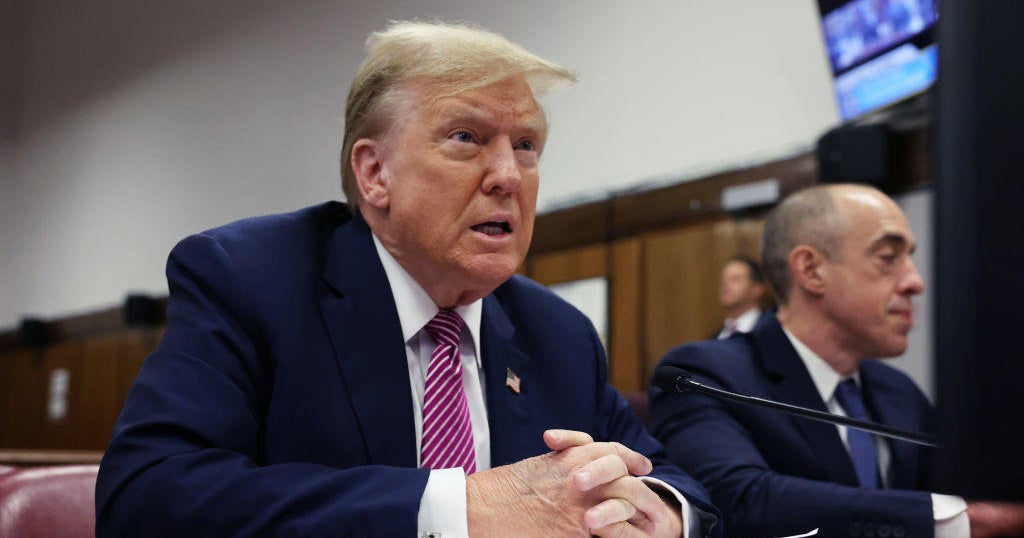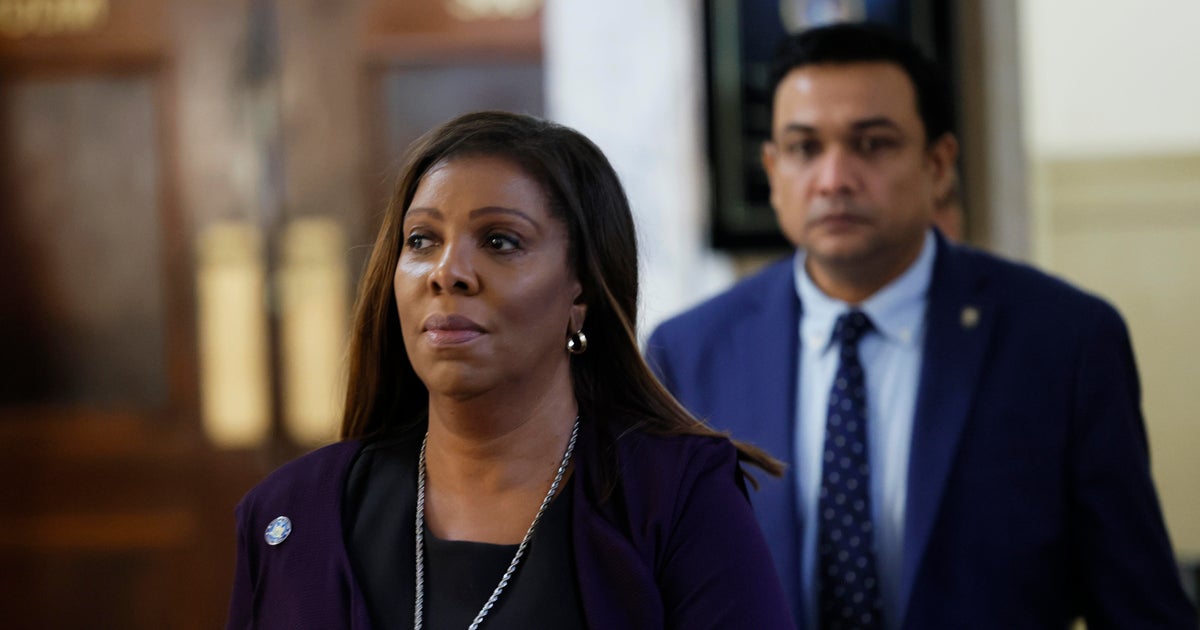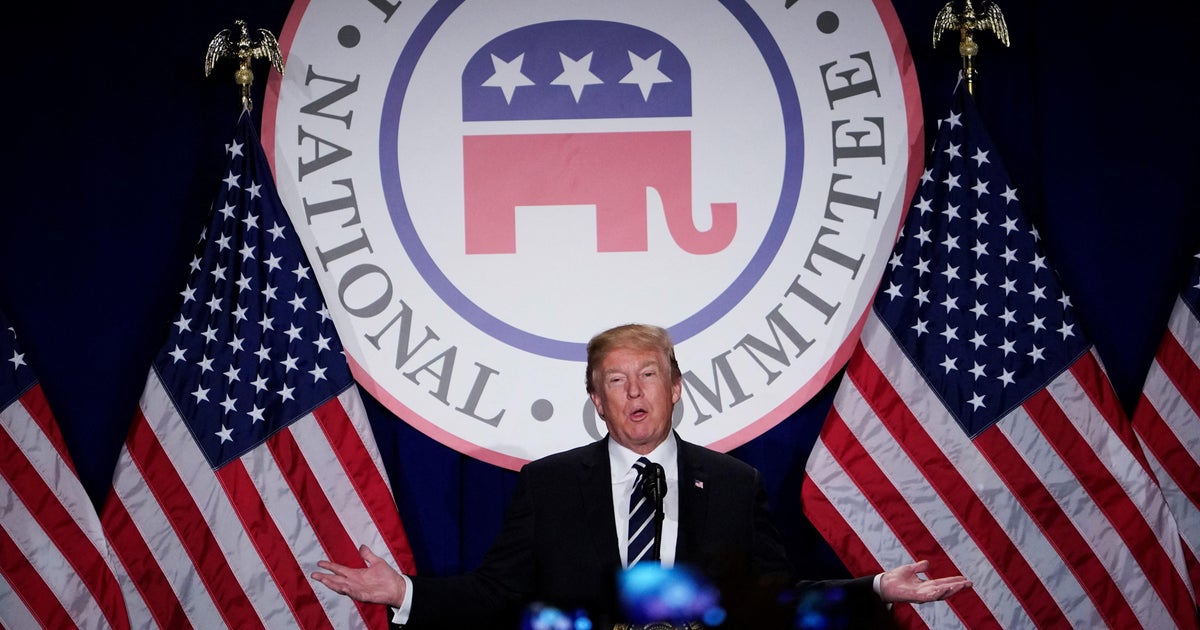5 unusual things about the Trump presidency
Detractors and supporters alike agree that President Trump’s presidency has already marked a departure from many of the norms of previous administrations. Here are five unusual facets of Mr. Trump’s White House and his tenure so far as commander-in-chief.
Presidential tweeting
Never has another president -- or anyone in public life, really -- made so much news in 140-character increments.
Mr. Trump’s Twitter feed became notorious even before he launched his campaign for president: he went after President Obama for playing golf while in office, wished a happy new year to even “the haters and losers” and went on a public crusade against actress Kristen Stewart. Throughout the campaign, his bombastic tweeting style and topics frequently set the political debate and caused controversy in the campaign.
Like his predecessor, Mr. Trump uses the @POTUS Twitter handle to post occasional, typically more official-sounding missives. But he never abandoned his personal Twitter: since taking office on Jan. 20, Mr. Trump has sent more than 100 tweets on everything from seemingly unfounded accusations of wiretapping against Mr. Obama to criticism of the “FAKE NEWS” media to going after Senate Minority Leader Chuck Schumer as a “clown.”
In addition to the content of the tweets themselves, many appear to be sent from Mr. Trump’s personal Android phone -- the unsecured one he used before taking office.
The “Southern White House”
Some call it the “Winter White House,” some the “Southern White House” -- but in his first month and a half in office Mr. Trump has made it clear that his Mar-a-Lago club in Palm Beach, Fla., will be a big part of his presidency.
According to CBS News’ Mark Knoller, Mr. Trump spent part or all of 14 of the first 50 days of his presidency at Mar-a-Lago -- or about 28 percent of his days as president. Of his eight weekends in office, four have been spent at Mar-a-Lago.
That’s also included eight golf outings so far -- considerably more than other new presidents, and far sooner into his presidency than Obama (who didn’t golf until late April of his first year in office). As we noted earlier, there’s some irony in the fact that Mr. Trump used to tweet criticism of Obama for golfing so often.
More than just time away from D.C. and the cost to taxpayers of Mr. Trump getting out of town almost every weekend, there are also security concerns that come with spending his time in a members-only club: when Mr. Trump took Japanese Prime Minister Shinzo Abe down with him last month, the two men sat out in the Mar-a-Lago dining room discussing sensitive information after North Korea held a missile test.
The neophyte cabinet
Very few people in the top echelon of Mr. Trump’s White House team have much by way of government experience.
Reince Priebus was a GOP functionary who rose to head of the Republican National Committee. Kellyanne Conway is a veteran of numerous campaigns, but not government work. Steve Bannon has been everything from a banker to a naval officer to a filmmaker, but has never been involved in public service in the political sense. Sean Spicer worked on Capitol Hill for a bit as a spokesman, but is best known for his lengthy tenure at the RNC under Priebus.
This is unusual for a White House, particularly when it comes to a job like chief of staff. All of President Obama’s White House chiefs of staff had prior government experience at high levels. The same goes for the chiefs of staffs for Presidents George W. Bush, George H.W. Bush, Ronald Reagan, and all but one of Bill Clinton’s chiefs of staff. Clinton’s first chief of staff, Mack McLarty, like Priebus, lacked prior significant federal government experience. After a year and a half, McLarty was replaced by Leon Panetta.
It is narratively fitting for Mr. Trump, himself the only man ever elected president without any prior experience in government of the military, to surround himself with such a band of outsiders. But their collective inexperience, at times, has sometimes been a hindrance. Priebus now faces some of the same challenges that McLarty did. The 1994 Washington Post story about McLarty’s replacement by Panetta quotes unnamed adviser who observed, “’What the president needs is someone who knows how to manage Congress, knows how to manage the media and knows how to manage Clinton.’” McLarty, the adviser continued, could not do any of the three.
Team of generals
Having generals in a presidential cabinet is nothing new; President Obama, for example, tapped several for senior positions. Still, Mr. Trump’s reliance on generals is still rather unusual, with four being picked for top jobs before his administration even began: Gen. James Mattis for Secretary of Defense, Gen. John Kelly for Homeland Security chief, Gen. Michael Flynn for National Security Advisor, and Gen. Keith Kellogg as chief of staff for the National Security Council.
Flynn subsequently resigned after it emerged that he had mislead administration officials about a conversation with the Russian ambassador, which led to his replacement by another general, H.R. McMaster. Mattis required a waiver from the Senate before accepting his role due his recent retirement from the military, which he was granted with bipartisan support. McMaster will serve as Mr. Trump’s national security adviser while still retaining his active-duty Army rank.
Before his election, Mr. Trump’s relationship with American generals was somewhat complicated. On the one hand, he often spoke with reverence for legendary American warriors like Gen. George Patton, and Flynn was one of his frequent opening acts on the campaign trail. At the same time, Mr. Trump also criticized generals and said he knew more than they do, particularly when it came to prosecuting the war against ISIS.
Post-inauguration campaign rallies
It’s not unusual for presidents to campaign after inauguration, though when they’ve more often used the podium to make a public case for their policies. Obama rallied Americans for his economic stimulus plan and for health care, while George W. Bush went from town to town to convince Americans of the wisdom of partially privatizing Social Security.
Mr. Trump, too, has hit the road to connect with voters, inviting supporters to join him in Florida last month at an airport hangar in Melbourne. White House communications staff referred to the event as a campaign rally, and said that the campaign was paying for the event.
The president told the enthusiastic crowd, “I’m here because I want to be among my friends and among the people,” before he proceeded to regale them with a review of his campaign promises and accomplishments. He vowed to repeal Obamacare, and touted his executive actions withdrawing from the Trans-Pacific Partnership, restarting work on the Keystone and Dakota Access pipelines, He also bashed the “dishonest media.” It was, in other words, nearly indistinguishable from the rallies that predated his presidency.
First lady not a White House resident
First Lady Melania Trump isn’t making the White House her home yet, opting to remain in Manhattan until “right after [Barron] finishes school,” President Trump said in November. Ten-year-old Barron Trump attends a private school in the Upper West Side in New York City. Melania Trump has been in town part of the time, and she has hired a social secretary and chief of staff. Last week, she hosted a luncheon for International Women’s Day, and she was also on hand for the first formal White House dinner -- a gathering with the National Governors Association a few weeks ago.
Since the White House opened its doors in 1800, the only other first lady not to occupy the White House was Anna Harrison, wife of the ninth president, William Henry Harrison. According to the White House, Anna Harrison was too ill to travel with her husband when he left Ohio for the White House in 1841. Then, a month after her his inauguration, just as she was preparing to leave Ohio for the White House -- by stagecoach -- she was informed that her husband had died. President Harrison had become ill after inauguration and never recovered.



